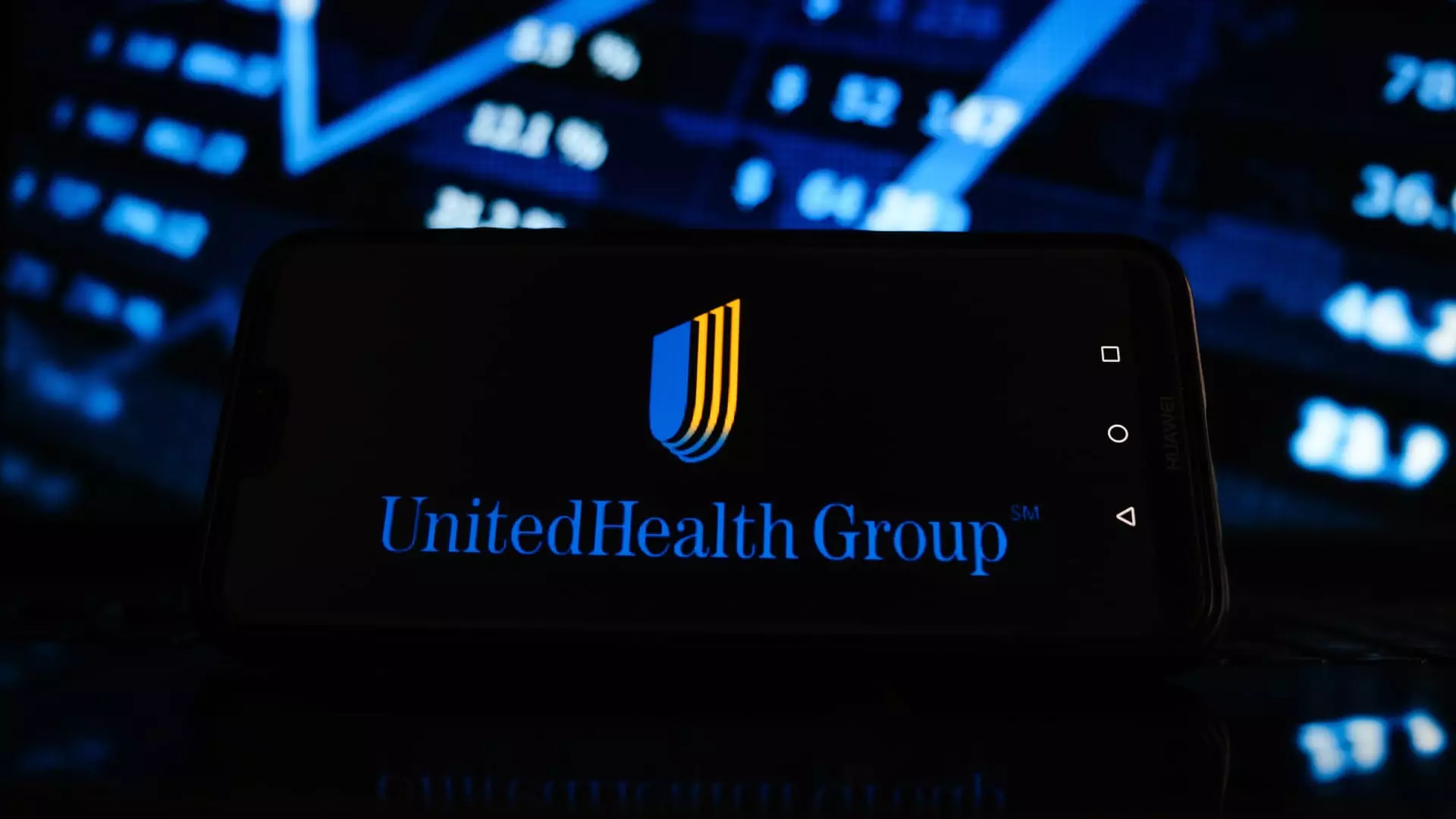UnitedHealth, a towering figure in the health insurance industry, has recently found itself on shaky ground, highlighted by a staggering 23% drop in shares over a single week. With the S&P 500 surging by 5.3% and most sectors enjoying a rally post-tariff negotiations between U.S. and Chinese officials, UnitedHealth’s absence from this optimistic narrative raises serious concerns about the company’s stability and the broader implications for the healthcare industry.
The alarming fact that shares have reached a five-year low amid potential criminal investigations by the Department of Justice into alleged Medicare fraud is not merely a corporate misstep; it signals deeper systemic issues that potentially affect millions. In a healthcare landscape increasingly governed by market fluctuations and investor confidence, the decline of one major player can ripple through the entire sector, highlighting the fragility of the healthcare system.
Consumer Trust on the Line
The crux of the matter lies in consumer trust—a cornerstone of any insurance model. When a giant like UnitedHealth faces allegations of misconduct, it stirs fear and skepticism among policyholders. Pundits and analysts, despite a $500 billion market cap and significant upside predicted by some, fail to account for the long-term ramifications such scandals can have on consumer sentiment. Should UnitedHealth falter, the potential exodus from its plans could be catastrophic.
This is a wake-up call for the industry; regulatory overseers and industry stakeholders must reassess their standards for rising medical costs and the methods employed to manage them. As a center-right observer of this unfolding narrative, I am particularly critical of the institutional complacency that allows such oversights—an urgent need for reform is clear.
The Ripple Effect of Poor Management
UnitedHealth’s struggles extend beyond its stock price; they expose fundamental flaws in healthcare management practices. There is an evident disconnect between leadership decisions and the financial realities facing the company, particularly as they slash annual profit projections and announce shocking downward adjustments due to unexpected medical costs. How can stakeholders justify their bullish outlook when the trajectory of the business remains fraught with peril?
What’s more concerning is the historical context: the last time UnitedHealth faced such uncertainty was during the 2008 Global Financial Crisis, a sobering reminder that healthcare giants are not immune to market pressures. This historical parallel leads to the notion that the current economic climate is reminiscent of a time when consumer confidence was at rock bottom; people tend to hesitate about their healthcare choices in uncertain times.
The Numbers Don’t Lie
Data from reliable sources provide a bleak picture for UnitedHealth. The stock’s relative strength index (RSI) recently plummeted to an alarming 14.9, signaling unprecedented overselling. Historically, RSI levels below 30 suggest potential rebound opportunities, but the dangers of relying solely on short-term trading indicators in a volatile market are underestimated by many. Investors must consider not just the numbers, but the undercurrents posing escalating threats to recovery.
One must not ignore the fact that in stock trading, maintaining a balance between short-term gains and long-term stability is crucial. The rapid decreases in UnitedHealth’s share price demonstrate a lack of confidence that could well outlast any potential rebound suggested by superficial indicators.
The Broader Implications for the Healthcare Sector
UnitedHealth’s situation serves as a microcosm of broader issues facing the American healthcare system. As other companies like Fiserv and various tech giants enjoy a temporary oversold state, the inequitable landscape of rising healthcare costs persists. If major players like UnitedHealth continue to operate within a framework of inefficiency and distrust, the entire sector could sway perilously toward a tipping point.
Federal regulators, industry advocates, and corporate leaders should brace for a future where health insurers are no longer viewed as trustworthy stewards of the healthcare system. The UnitedHealth downturn might precipitate structural changes in healthcare regulation and standards of corporate governance—an outcome that could either strengthen the system or throw it into disarray.
While some may argue that the market will eventually correct itself, the realities faced by UnitedHealth underscore a pressing need for accountability and innovation, making it imperative for the industry to confront its issues head-on before they deepen into an irreversible crisis.

